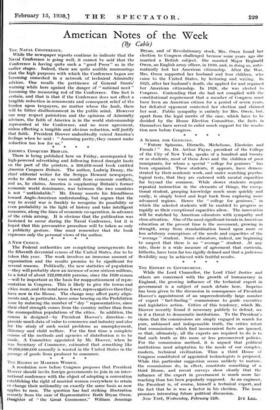THE EXPERT IN GOVERNMENT.
While the Lord Chancellor, the Lord Chief Justice and others are concerned with the growth of bureaucracy in
England, the growing influence of the technical expert in government is a subject of much debate here. Impetus has been given to the discussion in consequence of President Hoover's appointment of an unprecedentedly large number of expert " fact-finding " commissions to guide executive and legislative action. Critics of this tendency, which Mr. Hoover recently found it necessary publicly to defend, see in it a threat to democratic institutions. To the President's claim that the commissions are simply engaged in search for pure, unbiassed and indispensable truth, the critics retort that commissions which find inconvenient facts are ignored, so that, ultimately, all the experts are required to do is to find such truth as fits more or less preconceived policies. For the commission method, it is argued that political institutions need adaptation to the needs of our complex, modern, technical civilization. Thus a third House of Congress constituted of appointed technologists is proposed. While this particular suggestion seems unlikely to mature, the commissions do, in effect, constitute something of a third House, and recent surveys show clearly that the influence of the expert in government is much more far- reaching than has been popularly supposed. As an engineer, the President is, of course, himself a technical expert, and the 'fact that he is was a factor in his election. The issue promises interesting future political discussion.
New 'York, Yednesday, February 12th. Ivie LEE










































 Previous page
Previous page